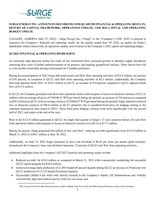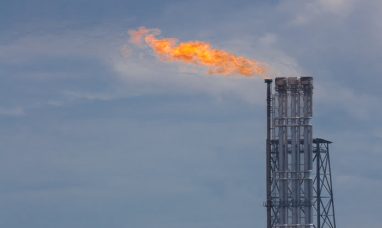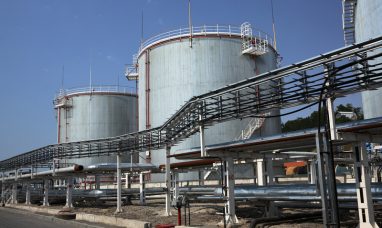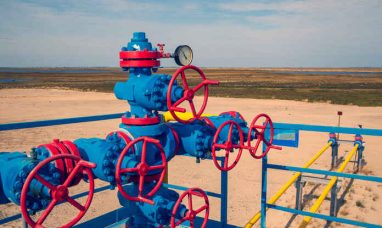SURGE ENERGY INC. ANNOUNCES RECORD SECOND QUARTER FINANCIAL & OPERATING RESULTS; RETURN OF CAPITAL FRAMEWORK; OPERATIONS UPDATE; AND 2022 CAPITAL AND OPERATING BUDGET UPDATE
Canada NewsWire
CALGARY, AB
,
July 27, 2022
/CNW/ – Surge Energy Inc. (“Surge” or the “Company”) (TSX: SGY) is pleased to announce the Company’s financial and operating results for the quarter ended
June 30, 2022
, an update on Surge’s shareholder returns framework, an operations update, and revisions to the Company’s 2022 capital and operating budget.
Q2 2022 FINANCIAL & OPERATING HIGHLIGHTS
An extremely tight physical market for crude oil has manifested from continued growth in demand, supply disruptions stemming from years of global underinvestment in oil projects, and ongoing geopolitical tensions. These factors have led to a favourable commodity pricing environment for Canadian producers.
During the second quarter of 2022 Surge delivered record cash flow from operating activities of
$75.8 million
, an increase of 818 percent, as compared to Q2/21 cash flow from operating activities of
$8.3 million
. Additionally, the Company delivered adjusted funds flow
1
of
$78.6 million
in Q2/22, an increase of 479 percent compared to Q2/21 adjusted funds flow of
$13.6 million
.
In Q2/22, the Company generated cash flow from operations before realized gains or losses on financial contracts of
$121.8 million
(with an average oil price of
US$108.41
WTI per barrel during the period), an increase of 318 percent as compared to
$29.2 million
in Q2/21 (with an average oil price of
US$66.07
WTI per barrel during the period). Surge reported a realized loss on financial contracts of
$46.0 million
in Q2/22, primarily due to mandated fixed price oil hedging relating to the corporate acquisitions that closed in 2H/21. These fixed price hedging volumes wind down significantly over the second half of 2022, and expire at the end of the year.
Prior to the
$121.8 million
generated in Q2/22, the single best quarter in Surge’s 12 year corporate history for cash flow from operations before realized gains or losses on financial contracts was Q3/14 at
$77.5 million
.
During the quarter, Surge generated $36 million of free cash flow
1
, reducing net debt significantly from
$315.8 million
at
March 31, 2022
to
$280.1 million
at
June 30, 2022
.
Additionally, on
June 15, 2022
Surge reinstated its base cash dividend of
$0.42
per share per annum (paid monthly). Annualized, the Company’s base cash dividend represents 12 percent of Q2/22 cash flow from operating activities.
Additional highlights from the Company’s Q2 2022 financial and operating results include:
- Reduced net debt
1
by
$35.6 million
as compared to
March 31, 2022
while concurrently completing the successful Q2/22 capital program for
$36.9 million
; - Achieved average daily production of 21,003 boepd (85 percent liquids) during Q2/22, an increase of 39 percent over Q2/21 production of 15,132 boepd (84 percent liquids);
- Successfully drilled 9 net wells with activity focused in the Company’s Sparky,
SE Saskatchewan
and
Valhalla
conventional, light and medium gravity crude oil core areas; and - As previously released, the Company was successful at a highly competitive Saskatchewan Crown land sale at
Steelman
, adding more than 40 net highly economic light oil
Frobisher
drilling locations, directly offsetting Surge’s recent successful drilling results.
|
|
|
|||||
|
|
|
|
|
|
|
|
|
|
||||||
|
|
|
|
|
|
|
|
|
|
|
|
|
|
|
|
|
|
|
|
|
|
|
|
|
|
|
|
|
|
|
|
|
|
|
|
|
|
|
|
|
|
|
|
|
|
|
|
|
|
|
|
|
|
|
|
|
|
|
|
|
|
|
|
|
|
|
|
|
|
|
|
|
|
|
|
|
|
|
|
|
|
|
|
|
|
|
|
|
|
|
|
|
|
|
|
|
|
|
|
|
|
|
|
|
|
|
|
|
|
|
|
|
|
|
|
|
|
|
|
|
|
|
|
|
|
|
|
|
|
|
|
|
|
|
|
|
|
||||||
|
|
||||||
|
|
|
|
|
|
|
|
|
|
|
|
|
|
|
|
|
|
|
|
|
|
|
|
|
|
|
|
|
|
|
|
|
|
||||||
|
|
|
|
|
|
|
|
|
|
|
|
|
|
|
|
|
|
|
|
|
|
|
|
|
|
||||||
|
|
|
|
|
|
|
|
|
|
|
|
|
|
|
|
|
|
|
|
|
|
|
|
|
|
|
|
|
|
|
|
|
|
|
|
|
|
|
|
|
|
|
|
|
|
|
|
|
|
|
|
|
|
|
|
|
|
|
|
|
|
|
|
|
|
|
|
|
|
|
|
|
|
|
|
|
|
|
|
|
|
|
|
|
|
|
|
|
|
|
|
|
|
|
|
|
|
|
|
|
|
|
|
|
|
||||||
|
|
||||||
|
|
||||||
Surge is poised to deliver strong operational results in 2H/22 and beyond with more than 2.6 billion of net (internally estimated) original oil in place (“OOIP”)
2
, an approximate 6.5 percent recovery factor to date, and dominant operational positions in two top tier light and medium gravity crude oil growth plays in the Sparky and
SE Saskatchewan
core areas. Further, with over
$1.3 billion
in tax pools, the Company is well positioned to deliver its shareholders a combination of:
- Continued net debt repayment, increasing Surge’s net asset value (“NAV”)
2
per share; - A sustainable base monthly cash dividend (currently a 4.7 percent yield based on a
$9.00
/share price); - Strategic share buybacks;
- Potential for variable or special dividends; and
- A modest production growth wedge.
On this basis, Surge’s Board and Management are pleased to announce the implementation of the Company’s return of capital framework. This return of free cash flow will follow a phased approach, based on achieving certain net debt targets, as set forth below:
Phase 1
: Return approximately 25 percent of free cash flow to shareholders through the Company’s existing base dividend of
$0.42
per share per annum. The remainder of free cash flow will be allocated to debt reduction until net debt is reduced to
$200 million
;
Phase 2
: Return approximately 50 percent of free cash flow to shareholders, with 25 percent allocated to the base dividend, and 25 percent allocated to strategic share buybacks, acquisitions, and/or variable or special dividends, until net debt is reduced below
$125 million
; and
Phase 3
: Return approximately 75 percent of free cash flow to shareholders once net debt is reduced below
$125 million
. 25 percent of free cash flow will be allocated to the base dividend, 50 percent allocated to strategic share buybacks, a modest growth wedge, and/or variable or special dividends, and 25 percent will be allocated to strategic acquisitions and/or further net debt repayment.
Strategic, opportunistic acquisitions continue to be a key focus for Surge as Management looks to increase sustainable free cash flow on a per share basis for shareholders. Surge’s approach to acquisitions will continue to be disciplined with a focus on acquiring high quality, large OOIP, low cost, conventional reservoirs that provide free cash flow per share accretion.
SE SASKATCHEWAN
, AND
VALHALLA
During Q2/22, Surge began its post spring break-up Sparky and
SE Saskatchewan
drilling programs, drilling 9 net wells in the quarter, with 7 net horizontal wells in Sparky, 1.5 net horizontal wells in
SE Saskatchewan
, and 0.5 net wells targeting the Doig formation at the Company’s large OOIP, light oil pool in the
Valhalla
area. The Company continues to be active in its two primary core areas in 2H/22, with two drilling rigs operating in the Sparky area, and one in SE Saskatchewan.
All 21.5 net wells drilled and completed by the Company during the first quarter of the year in the Sparky and
SE Saskatchewan
core areas were on production during the second quarter and added over 2,550 boepd to Q2/22. These drilling results are consistent with Surge’s type curve expectations.
Additionally, Surge has executed attractive fixed forward hedges for both power costs and WCS differentials, which provide stability in both operating costs and revenue.
Surge’s high quality conventional asset base is characterized by shallow reservoirs, which means that the Company’s drilling program is less susceptible to inflationary pressures. Shallow, conventional reservoirs can be drilled faster than deeper unconventional reservoirs, which reduces drilling days, the amount of steel used and, in many cases, the need to frac wells.
The Company will continue to monitor costs and manage capital expenditures for the balance of 2022 as they relate to the impact of supply constraints, cost inflation, and labour shortages that are being experienced across the energy industry and around the globe. Surge has secured the services necessary to execute its planned capital program for the balance of 2022 and into 2023, having contracted drilling rigs for operations in its Sparky and
SE Saskatchewan
core areas.
As previously released, the Company was successful at a highly competitive Saskatchewan Crown land sale at
Steelman
in Q2/22, which added more than 40 net, highly economic, light oil
Frobisher
drilling locations, directly offsetting recent successful drilling results. In addition, Surge has also been successful in adding to its Sparky core area land position through both Crown land sales and freehold leasing. To date in 2022, the Company has spent approximately
$15 million
in expenditures related to strategic, core area land acquisitions.
After completing a review of the impact of inflationary factors as well as land expenditures to date, Surge has increased its estimate for 2022 expenditures on property, plant, and equipment by approximately 12 percent, as compared to the Company’s original budget released on
January 17
, 2022.
On this basis, Surge is revising its 2022 capital guidance, as detailed below. The new capital expenditure estimates for 2022 include approximately
$15 million
of previously unbudgeted core area Crown and freehold land acquisitions.
|
|
|
|
|
|
|
|
|
|
|
|
|
|
|
Given the impact of the aforementioned inflationary pressures, as well as above average power costs experienced year-to-date, the Company is also revising its 2022 operational costs and expenditures as follows:
|
|
|
|
|
|
|
|
|
|
|
|
Surge is a high quality, intermediate publicly traded oil company focused on enhancing shareholder returns through free cash flow generation. The Company’s defined operating strategy is based on acquiring and developing high quality, light and medium grade crude oil conventional oil reservoirs, using proven technology to enhance ultimate oil recoveries.
Surge’s
December 31, 2021
independent Sproule net asset value is
$24.34
per share
3
on a proven plus probable basis, based on a flat
US$80
WTI per barrel crude oil price deck.
During the second quarter of 2022 Surge delivered record cash flow from operating activities of
$75.8 million
, an increase of 818 percent, as compared to Q2/21 cash flow from operating activities of
$8.3 million
. Prior to the
$121.8 million
of cash flow from operations before realized gains or losses on financial contracts generated in Q2/22, the single best quarter in Surge’s 12 year corporate history for cash flow from operations before realized gains or losses on financial contracts was Q3/14 at
$77.5 million
.
The Company’s fixed price oil hedge volumes will wind down and expire by the end of 2022, providing incremental cash flow and free cash flow in 2023 and beyond at current strip oil prices.
On
July 15, 2022
, Surge paid its first monthly cash distribution of its
$0.42
per share, per annum base dividend. This base dividend represents 12 percent of annualized Q2/22 cash flow from operating activities of more than
$300 million
.
The Company currently anticipates releasing preliminary 2023 guidance on or before the release of its Q3/22 results.
This press release contains forward-looking statements. The use of any of the words “anticipate”, “continue”, “estimate”, “expect”, “may”, “will”, “project”, “should”, “believe” and similar expressions are intended to identify forward-looking statements. These statements involve known and unknown risks, uncertainties and other factors that may cause actual results or events to differ materially from those anticipated in such forward-looking statements.
More particularly, this press release contains statements concerning: Surge’s declared focus and primary goals; management’s expectations and plans with respect to the development of its assets and the timing thereof; the Company’s return of capital framework, including its expectation that it will be positioned to deliver to its stakeholders a combination of: continued net debt repayment; a reinstated, sustainable, base monthly dividend; share buybacks; a modest production growth wedge; and potential for variable or special dividends, and the anticipated timing thereof; ; Surge’s internally estimated oil in place, drilling inventory and drilling locations; Surge’s 2022 capital and operating budget; Surge’s ongoing monitoring of costs and management of capital expenditures as they relate to the impact of supply constraints, cost inflation, and labour shortages; Surge’s belief that it has secured the services necessary to execute its planned capital program for the balance of 2022 and into 2023; Surge’s approach to future acquisition opportunities; Surge’s updated 2022 capital guidance, including in respect of strategic core area land acquisitions, incremental facility and infrastructure capital, inflation estimate increase for drilling and completions and its revised guidance for 2022(e) expenditures on property, plant, and equipment; Surge’s updated 2022 operational costs and expenditures, including 2022(e) royalties as percentage of petroleum and natural gas revenue, 2022(e) net operating expenses, 2022(e) transportation expenses and 2022(e) general & administrative expenses; and the anticipated timing of release of Surge’s preliminary 2023 guidance.
The forward-looking statements are based on certain key expectations and assumptions made by Surge, including expectations and assumptions the performance of existing wells and success obtained in drilling new wells; anticipated expenses, cash flow and capital expenditures; the application of regulatory and royalty regimes; prevailing commodity prices and economic conditions; development and completion activities; the performance of new wells; the successful implementation of waterflood programs; the availability of and performance of facilities and pipelines; the geological characteristics of Surge’s properties; the successful application of drilling, completion and seismic technology; the determination of decommissioning liabilities; prevailing weather conditions; exchange rates; licensing requirements; the impact of completed facilities on operating costs; the availability and costs of capital, labour and services; and the creditworthiness of industry partners.
Although Surge believes that the expectations and assumptions on which the forward-looking statements are based are reasonable, undue reliance should not be placed on the forward-looking statements because Surge can give no assurance that they will prove to be correct. Since forward-looking statements address future events and conditions, by their very nature they involve inherent risks and uncertainties. Actual results could differ materially from those currently anticipated due to a number of factors and risks. These include, but are not limited to, risks associated with the condition of the global economy, including trade, public health (including the impact of COVID-19) and other geopolitical risks; risks associated with the oil and gas industry in general (e.g., operational risks in development, exploration and production; delays or changes in plans with respect to exploration or development projects or capital expenditures; the uncertainty of reserve estimates; the uncertainty of estimates and projections relating to production, costs and expenses, and health, safety and environmental risks); commodity price and exchange rate fluctuations and constraint in the availability of services, adverse weather or break-up conditions; uncertainties resulting from potential delays or changes in plans with respect to exploration or development projects or capital expenditures; and failure to obtain the continued support of the lenders under Surge’s bank line. Certain of these risks are set out in more detail in Surge’s AIF dated
March 9, 2022
and in Surge’s MD&A for the period ended
December 31, 2021
, both of which have been filed on SEDAR and can be accessed at
www.sedar.com
.
The forward-looking statements contained in this press release are made as of the date hereof and Surge undertakes no obligation to update publicly or revise any forward-looking statements or information, whether as a result of new information, future events or otherwise, unless so required by applicable securities laws.
The term “boe” means barrel of oil equivalent on the basis of 1 boe to 6,000 cubic feet of natural gas. Boe may be misleading, particularly if used in isolation. A boe conversion ratio of 1 boe for 6,000 cubic feet of natural gas is based on an energy equivalency conversion method primarily applicable at the burner tip and does not represent a value equivalency at the wellhead. “Boe/d” and “boepd” mean barrel of oil equivalent per day. Bbl means barrel of oil and “bopd” means barrels of oil per day. NGLs means natural gas liquids.
This press release contains certain oil and gas metrics and defined terms which do not have standardized meanings or standard methods of calculation and therefore such measures may not be comparable to similar metrics/terms presented by other issuers and may differ by definition and application. All oil and gas metrics/terms used in this document are defined below:
Original Oil in Place (“OOIP”) means Discovered Petroleum Initially In Place (“DPIIP”). DPIIP is derived by Surge’s internal Qualified Reserve Evaluators (“QRE”) and prepared in accordance with National Instrument 51-101 and the Canadian Oil and Gas Evaluations Handbook (“COGEH”). DPIIP, as defined in COGEH, is that quantity of petroleum that is estimated, as of a given date, to be contained in known accumulations prior to production. The recoverable portion of DPIIP includes production, reserves and Resources Other Than Reserves (ROTR). OOIP/DPIIP and potential recovery rate estimates are based on current recovery technologies. There is significant uncertainty as to the ultimate recoverability and commercial viability of any of the resource associated with OOIP/DPIIP, and as such a recovery project cannot be defined for a volume of OOIP/DPIIP at this time. “Internally estimated” means an estimate that is derived by Surge’s internal QRE’s and prepared in accordance with National Instrument 51-11 –
Standards of Disclosure for Oil and Gas Activities
. All internal estimates contained in this new release have been prepared effective as of
Jan 1, 2021
.
NAV per share is the Company’s Net Asset Value as of 2021YE (on a Before Tax basis), evaluated by an independent auditor (Sproule) and in accordance with COGE Handbook, minus net debt, then divided by the company’s basic share count as of
Dec 31, 2021
. Surge’s NAV does not include any value for Land or Seismic. Surge’s Total Proved plus Probable Net Asset Value on Sproule’s 2021YE price deck was
$16.94
per share.
February 2022
pricing assumptions used to generate
$24.34
/share Total Proved plus Probable Net Asset Value were:
US$80
/bbl WTI,
US$13.00
/bbl WCS Differential,
US$3.50
/bbl EDM/Cromer Differential,
$0.79
FX and
$3.25
per mmbtu AECO.
This press release discloses drilling locations in two categories: (i) booked locations; and (ii) unbooked locations. Booked locations are proved locations and probable locations derived from an internal evaluation using standard practices as prescribed in the Canadian Oil and Gas Evaluations Handbook and account for drilling locations that have associated proved and/or probable reserves, as applicable.
Unbooked locations are internal estimates based on prospective acreage and assumptions as to the number of wells that can be drilled per section based on industry practice and internal review. Unbooked locations do not have attributed reserves or resources. Unbooked locations have been identified by Surge’s internal certified Engineers and Geologists (who are also Qualified Reserve Evaluators) as an estimation of our multi-year drilling activities based on evaluation of applicable geologic, seismic, engineering, production and reserves information. There is no certainty that the Company will drill all unbooked drilling locations and if drilled there is no certainty that such locations will result in additional oil and gas reserves, resources or production. The drilling locations on which the Company actually drills wells will ultimately depend upon the availability of capital, regulatory approvals, seasonal restrictions, oil and natural gas prices, costs, actual drilling results, additional reservoir information that is obtained and other factors. While certain of the unbooked drilling locations have been de-risked by drilling existing wells in relative close proximity to such unbooked drilling locations, the majority of other unbooked drilling locations are farther away from existing wells where management has less information about the characteristics of the reservoir and therefore there is more uncertainty whether wells will be drilled in such locations and if drilled there is more uncertainty that such wells will result in additional oil and gas reserves, resources or production.
Assuming a
Jan 1, 2022
reference date, the Company will have over >1,050 gross (>975 net) drilling locations identified herein; of these >550 gross (>500 net) are unbooked locations. Of the 456 net booked locations identified herein, 362 net are Proved locations and 95 net are Probable locations based on Sproule’s 2021YE reserves. Assuming an average number of wells drilled per year of 75, Surge’s >1,050 locations provide 13 years of drilling.
Surge’s internally used type curves were constructed using a representative, factual and balanced analog data set, as of
January 1, 2022
. All locations were risked appropriately, and EURs were measured against OOIP estimates to ensure a reasonable recovery factor was being achieved based on the respective spacing assumption. Other assumptions, such as capital, operating expenses, wellhead offsets, land encumbrances, working interests and NGL yields were all reviewed, updated and accounted for on a well by well basis by Surge’s Qualified Reserve Evaluators. All type curves fully comply with Part 5.8 of the Companion Policy 51 – 101CP.
This press release includes references to non-GAAP and other financial measures used by the Company to evaluate its financial performance, financial position or cash flow. These specified financial measures include non-GAAP financial measures and non-GAAP ratios, are not defined by IFRS and therefore are referred to as non-GAAP and other financial measures. Certain secondary financial measures in this press release – namely “adjusted funds flow”, “adjusted funds flow per share”, “free cash flow”, “net debt”, “net operating expenses”, “operating netback”, and “adjusted funds flow per boe” are not prescribed by GAAP. These non-GAAP and other financial measures are included because management uses the information to analyze business performance, cash flow generated from the business, leverage and liquidity, resulting from the Company’s principal business activities and it may be useful to investors on the same basis. None of these measures are used to enhance the Company’s reported financial performance or position. The non-GAAP and other financial measures do not have a standardized meaning prescribed by IFRS and therefore are unlikely to be comparable to similar measures presented by other issuers. They are common in the reports of other companies but may differ by definition and application. All non-GAAP and other financial measures used in this document are defined below.
Adjusted funds flow is a non-GAAP financial measure. The Company adjusts cash flow from operating activities in calculating adjusted funds flow for changes in non-cash working capital, decommissioning expenditures, and cash settled transaction and other costs. Management believes the timing of collection, payment or incurrence of these items involves a high degree of discretion and as such may not be useful for evaluating Surge’s cash flows.
Changes in non-cash working capital are a result of the timing of cash flows related to accounts receivable and accounts payable, which management believes reduces comparability between periods. Management views decommissioning expenditures predominately as a discretionary allocation of capital, with flexibility to determine the size and timing of decommissioning programs to achieve greater capital efficiencies and as such, costs may vary between periods. Transaction and other costs represent expenditures associated with property acquisitions and dispositions, and employee severance costs, which management believes do not reflect the ongoing cash flows of the business, and as such reduces comparability. Each of these expenditures, due to their nature, are not considered principal business activities and vary between periods, which management believes reduces comparability.
Adjusted funds flow per share is a non-GAAP ratio calculated using the same weighted average basic and diluted shares used in calculating income per share.
The following table reconciles cash flow from operating activities to adjusted funds flow and adjusted funds flow per share:
|
|
|
|||
|
|
|
|
|
|
|
|
|
|
|
|
|
|
|
|
|
|
|
|
|
|
|
|
|
|
|
|
|
|
|
|
|
|
|
|
|
|
|
|
|
|
Free cash flow is a non-GAAP financial measure, calculated as cash flow from operating activities less expenditures on property, plant, equipment and dividends paid. Management uses free cash flow to determine the amount of funds available to the Company for future capital allocation decisions.
Net debt is a non-GAAP financial measure, calculated as bank debt, term debt, plus the liability component of the convertible debentures plus current assets, less current liabilities, however, excluding the fair value of financial contracts, decommissioning obligations, and lease and other obligations. There is no comparable measure in accordance with IFRS for net debt. This metric is used by management to analyze the level of debt in the Company including the impact of working capital, which varies with the timing of settlement of these balances.
|
|
|
|
|
|
|
|
|
|
|
|
|
|
|
|
|
|
|
|
|
|
|
|
|
|
|
|
|
|
|
|
|
|
|
|
|
|
|
|
|
|
|
|
|
Net operating expenses is a non-GAAP financial measure, determined by deducting processing income, primarily generated by processing third party volumes at processing facilities where the Company has an ownership interest. It is common in the industry to earn third party processing revenue on facilities where the entity has a working interest in the infrastructure asset. Under IFRS this source of funds is required to be reported as revenue. However, the Company’s principal business is not that of a midstream entity whose activities are dedicated to earning processing and other infrastructure payments. Where the Company has excess capacity at one of its facilities, it will look to process third party volumes as a means to reduce the cost of operating/owning the facility. As such, third party processing revenue is netted against operating costs when analyzed by management.
Operating netback is a non-GAAP financial measure, calculated as petroleum and natural gas revenue and processing and other income, less royalties, realized gain (loss) on commodity and FX contracts, operating expenses, and transportation expenses. Operating netback per boe is calculated as operating netback divided by total barrels of oil equivalent produced during a specific period of time. There is no comparable measure in accordance with IFRS. This metric is used by management to evaluate the Company’s ability to generate cash margin on a unit of production basis.
Operating netback & adjusted funds flow are calculated on a per unit basis as follows:
|
|
|
|||
|
|
|
|
|
|
|
|
|
|
|
|
|
|
|
|
|
|
|
|
|
|
|
|
|
|
|
|
|
|
|
|
|
|
|
|
|
|
|
|
|
|
|
|
|
|
|
|
|
|
|
|
|
|
|
|
|
|
|
|
|
|
|
|
|
|
|
|
|
|
|
|
|
|
|
|
|
|
|
|
|
|
|
|
For more information about Surge, please visit our website at
www.surgeenergy.ca
Neither the TSX nor its Regulation Services Provider (as that term is defined in the policies of the TSX) accepts responsibility for the adequacy or accuracy of this release.
|
|
|
|
|
|
|
|
|
|
|
|
SOURCE Surge Energy Inc.

![]()
View original content to download multimedia:
http://www.newswire.ca/en/releases/archive/July2022/27/c9253.html


















